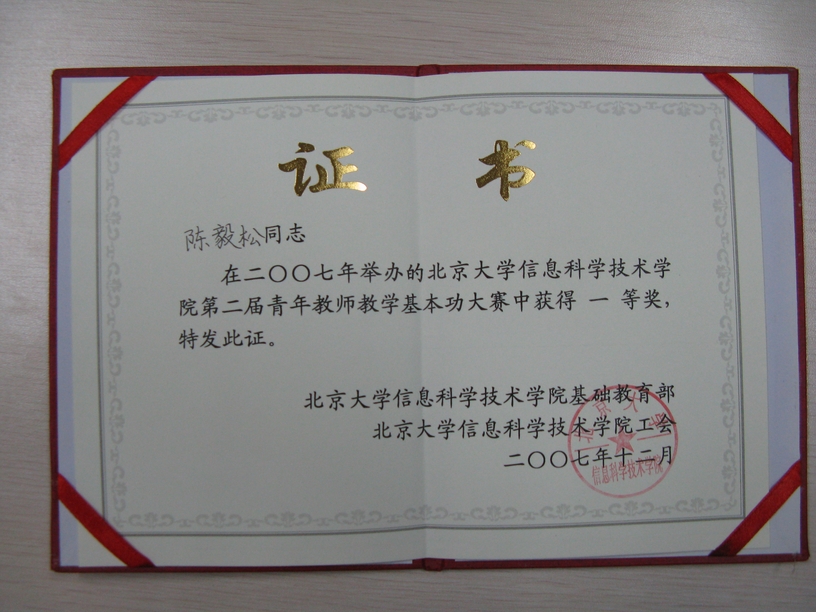Image
Computing (Part of the graduated course "Computer Graphics & Multimedia techniques")
|
Home |
Schedule |
Assignments |
Additional Resources |
Bulletin |
Course Summary
Lectures: Thursday 12:30-15:30, Room: 509,
Teaching building #2.
Instructor: Chen
Yisong -- 1316E,

Announcements
Course Description
This
course serves as an introduction to the advanced techniques in the area of
image and vision computing. Topics include: principles of image formation;
feature extraction and matching; shape analysis, segmentation and clustering;
object recognition; object detection; optical flow; projective geometry; camera
calibration; single/multiple view scene analysis, stereo; tracking; augmented
reality; visualization; etc.
Prerequisites (preferred
but not mandatory)
Linear
algebra
Probability
and statistics
Numerical
computation
Related topics
Digital image processing
Computer vision
Computer
graphics
Pattern
recognition
Programming toolkits
Matlab
(recommended)
C/C++
Reference Textbooks
1.
Computer Vision : A Mordern
Approach, D. Forsyth and J. Ponce, Prentice-Hall, 2001
2.
A
Introductory Techniques for 3-D Computer Vision, Emanuele Trucco,
Alessandro Verri, Prentice Hall, 1998
3.
Numerical recipes in C: the art of scientific computing, 2nd ed., available online , W. H. Press et al.,
4.
Three-Dimensional
Computer Vision, O.
Faugeras, MIT Press, 1993
5.
Multiple View Geometry in
Computer Vision, Richard Hartley and Andrew Zisserman,
6.
Digital
Image Processing (2nd Edition), Rafael C. Gonzalez, Richard E. Woods,
Prentice Hall, 2002
7.
Image
Processing, Analysis, and Machine Vision (3rd Edition),
Grading Policy
Participation
activity 50%
Project
50%